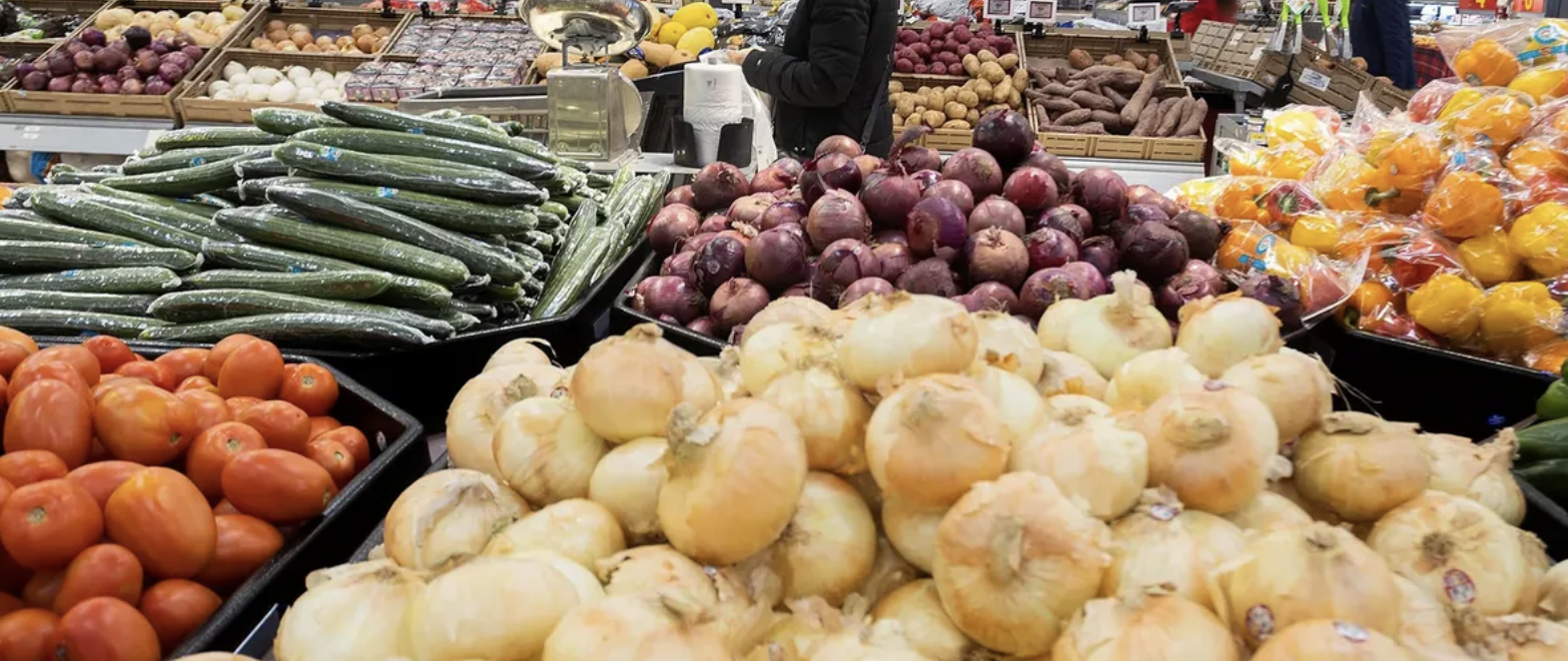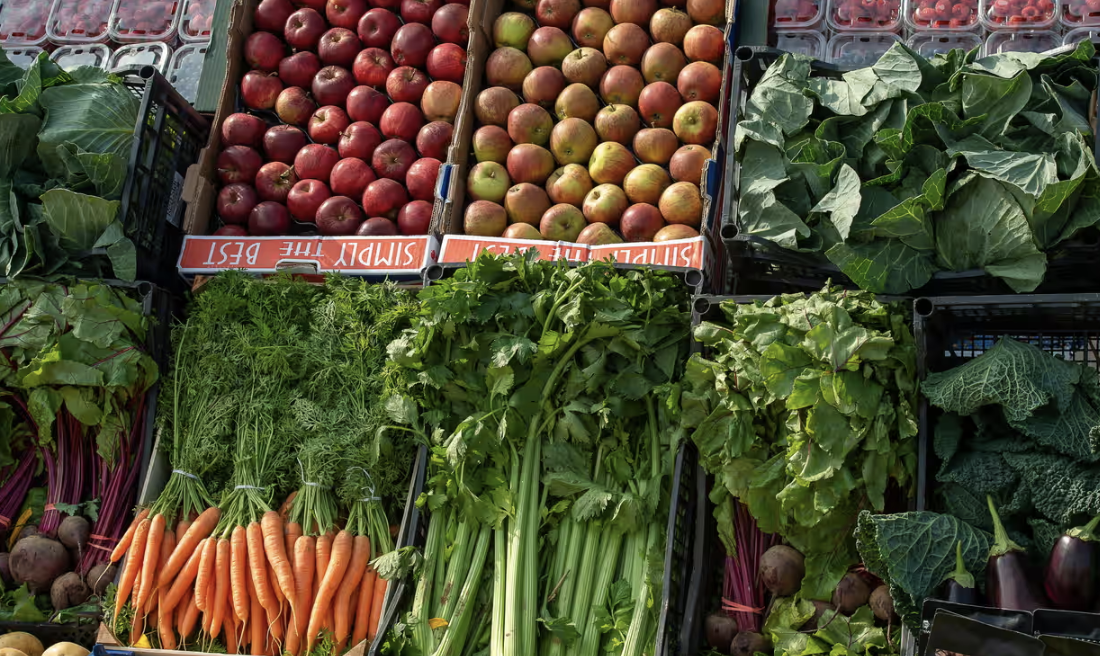New Bill Aims To Bring Nutritious Food To DC Jail And Other Correctional Facilities
Amanda Michelle Gomez
A majority of District Councilmembers, led by judiciary and public safety committee chairperson Brook Pinto (D-Ward 2), introduced legislation aiming to ensure residents of D.C. jail and other correctional facilities have access to healthy, nutritious food. For years, residents have been sounding the alarm about the conditions inside the city’s correctional facilities, particularly the food, that was often processed, sometimes expired, and even withheld as a form of punishment.
The bill, dubbed the FRESH STARTS Act, mandates that all Department of Corrections facilities, including the jail, meet basic nutritional standards, as well as direct the agency to adopt the Good Food Purchasing Policy, a national campaign that offers a framework on how to buy food that’s more sustainable, ethical, local, and nutritious. (In 2018, the Council directed DC Public Schools to purchase food that meets those national standards as part of The Healthy Students Amendment Act.)
The FRESH STARTS Act also directs the D.C. Correctional Facilities Task Force to develop a plan for promoting nutrition, and aims to improve Council oversight of facilities with increased information sharing. The legislation was co-introduced by Councilmembers Charles Allen (D-Ward 6), Christina Henderson (I-At-Large), Robert White (D-At-Large), Vincent Gray (D-Ward 7), Matthew Frumin (D-Ward 3), Janeese Lewis George (D-Ward 4), and Brianne Nadeau (D-Ward 1).
Jan. 6 insurrectionists housed at the D.C. Jail have garnered national attention to the conditions there, with their lawyers alleging that their clients have been denied medical treatment, among other accusations. The U.S. Marshals Service ordered an inspection of correctional facilities in November 2021, which found “systemic failures,” inappropriate behavior from guards, and unsanitary conditions. As a result, one third of incarcerated residents of the jail — about 400 people — were ordered to be transferred to a federal prison in Pennsylvania.
Though the DOC has denied the claims in the report, the agency entered into a memorandum of understanding with the U.S. Marshals Service, pledging to work together to improve conditions.
Local advocates were disheartened that these unprecedented actions came only after insurrectionists warned of troublesome conditions. Incarcerated individuals and returning citizens have attested to inadequate food, among other poor living conditions, at the jail for some time. In testimony published in November 2021, several clients of the Public Defender Service for the District of Columbia described being starved for more food inside the jail.
“They gave you medication like pain medicine, the pain medication was too strong to take because you’re not eating enough food to digest those pills,” said client Lynn Massey in video testimony.
“You can’t feed a grown man, a grown man cannot live all of that, a grown man will be hungry and starving,” said another person incarcerated there, Shawn Burgess.
Another client detailed how their drinking water was discolored or they had to drink out of the sink. Another described not being able to flush the toilet full of feces.
The Department of Corrections contracts with Culinary Arts/Aramark, which the agency says provides ServSafe certification instruction and testing. During a 2021 roundtable hosted by DC Greens, several returning citizens described how they usually only had access to processed food at the jail. When they were served fruit, they said it was rotten. Even the milk was expired, according to returning citizen Shauntell Harley.
“I just wanted something fresh, fresh vegetables, fresh fruit, anything fresh,” said Harley, adding that diet impacts people’s health and behavior.
The 2021 memo from acting U.S. marshal for D.C. Lamont J. Ruffin confirmed that conditions at the jail were troubling. The memo based on the inspection said that people detained at the jail appeared to be denied food and water “for punitive reasons.” The memo also detailed how water had been shut off in some cells, preventing individuals from accessing drinking water or flushing toilets.
The new legislation calls for a task force that would be charged with developing and establishing nutritional guidelines that meet or exceed the federal Dietary Guidelines for Americans. These guidelines call for focusing on nutrient-dense foods, including vegetables, whole fruits, dairy, protein, and whole grains, as well as limiting added sugars, saturated fat, and sodium. Beginning Jan. 2024, the agency would have to provide all people incarcerated in DOC facilities with daily meals that meet or exceed federal nutritional standards.
The bill also establishes a “fresh foods” fund to purchase “nutrient-dense foods” to meet nutritional standards and supplement any existing correctional facilities contracts, as well as a hospitality and culinary arts training program for residents who are incarcerated. The program would identify employers to assist with apprenticeship or job placement for participants upon release. Chefs have often named the hospitality industry, namely restaurants, as one of the most accepting industries for returning citizens.
The problems at the jail exceed the food. That’s why a task force was charged with coming up for a plan to replace the jail, and called for closing the facility by 2027. Mayor Muriel Bowser’s 2022 budget proposal also included funds to replace the jail.
—
Image credit: Photo of DC Jail, Jenny Gathright / DCist/WAMU







